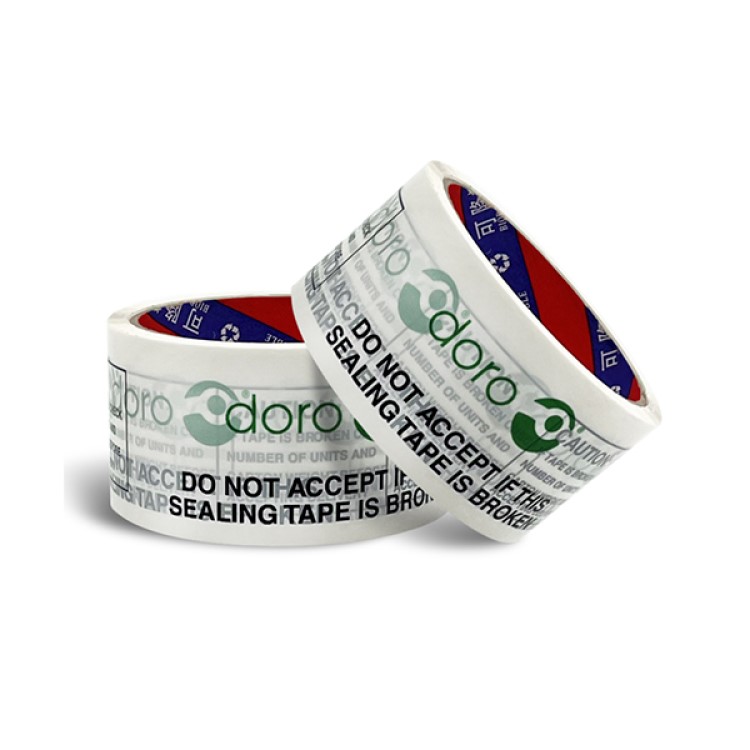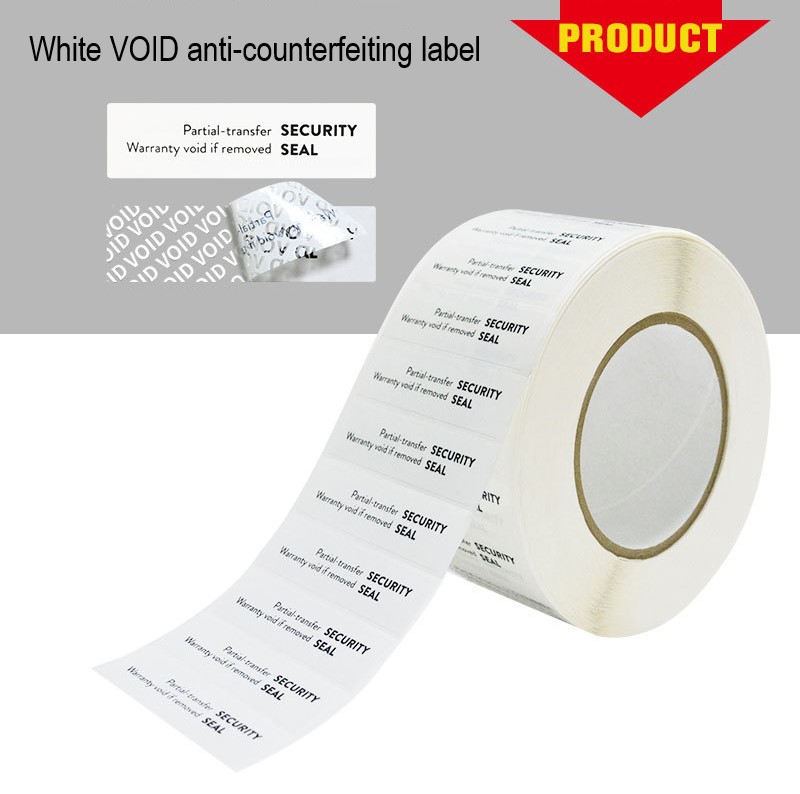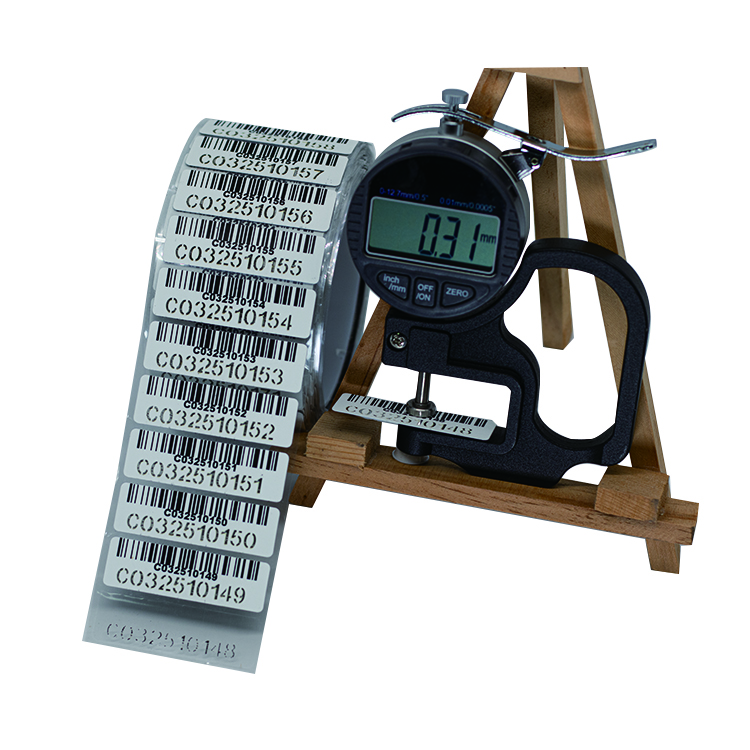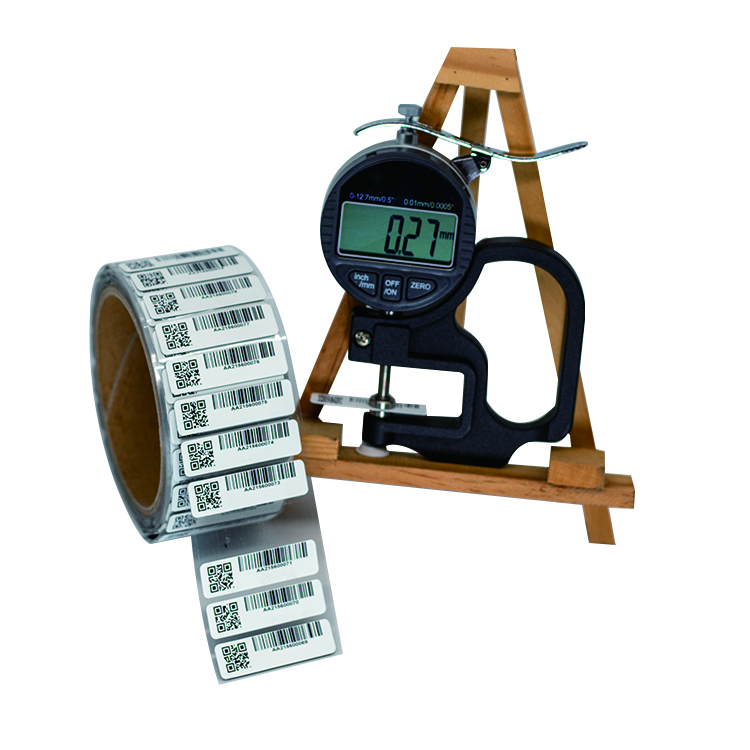
PP synthetic paper label
Basically the same as polyester film, it needs to be biaxially stretched to maintain dimensional stability. The surface should undergo corona treatment. After processing, it can be made into transparent, bright milky white, and matte milky white information labels with waterproof, oil resistant, and chemical resistant properties, suitable for heat transfer printing.
The advantages of synthetic paper adhesive labels compared to other labels are mainly reflected in the following aspects
1. Environmental friendliness: Synthetic paper does not require the use of wood or natural textile materials in the production process, greatly reducing the consumption of natural resources. At the same time, synthetic paper is recyclable and has a high reuse rate, which is in line with environmental protection concepts. In contrast, traditional paper labels generate a large amount of waste during the production process, causing pollution to the environment.
2. High strength and wear resistance: Synthetic paper has high strength and wear resistance, and can withstand various harsh environmental tests. In logistics, warehousing and other processes, synthetic paper adhesive labels can maintain clear and complete identification, and are not easily detached or damaged. Traditional paper labels are prone to wear and tear during transportation, which affects the clarity and integrity of the identification.
3. Lightweight and Soft: Synthetic paper adhesive labels use synthetic paper as the substrate, which has a lighter weight and softer texture compared to traditional paper. This makes synthetic paper adhesive labels more flexible when pasting and able to adapt to various curved surfaces.
5. Waterproof and moisture-proof: Synthetic paper adhesive labels have good waterproof and moisture-proof properties, and can maintain good adhesion and durability in humid environments. This makes synthetic paper adhesive labels widely applicable in situations where waterproofing and moisture resistance are required.
6. High temperature resistance: Synthetic paper adhesive labels can withstand high temperatures and are not easily deformed or foamed. This makes synthetic paper adhesive labels have good adaptability in situations where high temperature resistance is required.
In summary, synthetic paper adhesive labels have shown excellent performance in environmental protection, strength, wear resistance, lightweight and soft, waterproof and moisture-proof, and high temperature resistance. Therefore, they have been widely used in various fields such as cable labels, medical, pharmaceutical labels, electronic devices, household appliances, automobiles, chemical industries, and more.
Advantages of Synthetic Paper Adhesive Labels over Other Labels
1. High strength and wear resistance
Synthetic paper has high strength and wear resistance, and can withstand various harsh environmental tests. In logistics, warehousing and other processes, synthetic paper adhesive labels can maintain clear and complete identification, and are not easily detached or damaged. Traditional paper labels are prone to wear and tear during transportation, which affects the clarity and integrity of the identification
2. Weather resistance
Synthetic paper adhesive labels have good weather resistance and can maintain good performance in harsh environments. Synthetic paper can maintain good stability and durability in high, low, and humid environments. Traditional paper labels are prone to deformation and discoloration in harsh environments, which affects the effectiveness of identification
3. Convenient Processing
Synthetic paper adhesive labels have high flexibility in the processing and can be made using various processing techniques. Synthetic paper can easily handle processes such as cutting, die-cutting, embossing, and heat printing. In addition, synthetic paper also has good chemical resistance and is not easily corroded and contaminated by chemicals
4. Access to ingredients
Synthetic paper adhesive labels meet food grade standards and can directly come into contact with ingredients. In the field of food packaging, synthetic paper adhesive labels are widely used in food packaging, tableware labeling, and other aspects. Traditional paper labels may produce harmful substances when in contact with food ingredients, posing a potential threat to food safety
We offer comprehensive technical support, including free professional labeling solutions, advice on label materials and adhesive selection, as well as online/offline assistance from professional software and hardware engineers. Service email: andy@ownlikes.cn. In pre-sales, we leverage our extensive experience in specialty labeling projects to provide clients with the most suitable hardware solutions. Additionally, all our label barcode printers and scanners come with a three-year free warranty, demonstrating our confidence in our products.






This site is protected by reCAPTCHA and the Google Privacy Policy and Terms of Service apply.